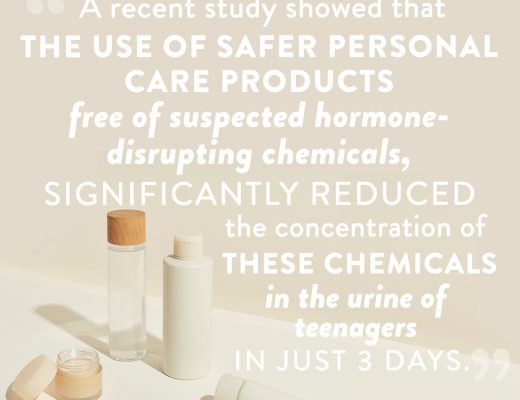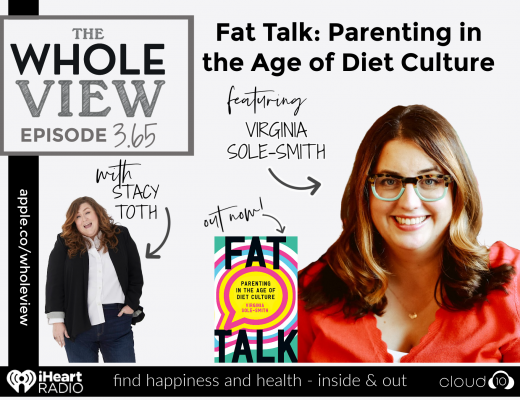Welcome Sarah Marikos to the Whole View! This week, Stacy and Sarah dive into ACEs, or Adverse Childhood Experiences, the science behind them, and how they increase our understanding of social justice and mental health, both in children and adults. Sarah gives listeners an inside look into how ACE trauma works, what goes into ACE scores, and how they can help us better understand ourselves and our loved ones.

Find Sarah:
If you enjoy the show, please leave a review. Letting people know on iTunes or however you listen that it’s worth their time could change someone’s life!

Key Takeaways
Introductions
- Stacy was introduced to ACE, Adverse Childhood Experiences, through training to be a treatment care foster resource parent. Generally, it’s more widely known after the last few years of social justice awakening and mental health. While she still applies her training on a daily basis at home, Stacy has come to understand its impact much more broadly.
- If we don’t understand how trauma impacts children for their entire lives, we can’t do all the things science tells us that we can do to prevent ACEs or childhood trauma or what we know we can do to support children and families who’ve experienced it.
- “ACE” is the scientific name for 10 factors of toxic-stress, producing really bad outcomes for kids and can impact us for our entire lives. For example, when one experiences four or more categories of childhood exposure, compared to those who had experienced none, they:
- had 4-12 times the increased health risks for alcoholism, drug abuse, depression, and suicide attempt;
- a 2- to 4-fold increase in smoking,
- poor self-rated health,
- ≥50 sexual intercourse partners, and subsequent sexually transmitted disease; and
- a 1.4- to 1.6-fold increase in physical inactivity and severe obesity.
- The number of categories of adverse childhood exposures has a graded relationship to the presence of adult diseases including ischemic heart disease, cancer, chronic lung disease, skeletal fractures, and liver disease. This compounds, and we recognize stress as the greatest impact on our health.
- Furthermore, ACEs add stressors without a means for most young people to learn healthy coping skills. Consequently, maladaptive behaviors causing isolation, self harm, binge eating, etc. can result in adult findings.
ACE Trauma & What It Can Teach US
- As trauma increases, the relationship of adult risks in including disease also increase. Additionally, emotional struggles increase, leading to a higher likelihood of self harm, suicidality, and disordered eating.
- Autoimmune diseases are specifically linked to childhood trauma. Moreover, science has shown if we have an autoimmune disease and a high ACE score, we have exposed our body to a lot of different types of stress.
- Generally, all of this compounds and creates physical and emotional trauma. If we don’t address or work through the trauma, these adverse childhood events it carries forward into subsequent generations and compounds into generational trauma.
- Sarah has seen this in the foster care system, different parts of her own life, making it much more difficult to navigate in adulthood.
Understanding ACE Trauma
Firstly, The term ACEs comes from a landmark Kaiser Permanente-CDC study from 1997. It looked at ten types of stressful or traumatic events that fall into three categories:
- Abuse
- Physical abuse
- Emotional abuse
- Sexual abuse
- Neglect
- Physical neglect
- Emotional neglect
- Household challenges
- Household member with mental illness
- Witnessing domestic violence
- Household member with substance abuse
- Incarcerated household member
- Divorce or separation of parents
- In fact, they are so common that 2 out of 3 of us have at least one. Risk factors begin at one and become higher with the more traumatic experiences a child faces before the age of 18.
- Altogether, millions of us have experienced discrimination, poverty, and racism as kids, and these experiences can have similar impacts as ACEs. Additionally, other common childhood adversities beyond the ten ACEs in the original study include the following.
- Discrimination based on race, ethnicity, gender identity or sexual orientation (such as LGBTQ+), religion, learning differences, or disabilities
- Poverty
- Racism, systemic and institutional
- Other violence, like getting bullied, experiencing violence yourself, or seeing others get hurt in your neighborhood, community or school
- Intergenerational and cultural trauma, like the displacement and genocide of indigenous people, slavery, and the Holocaust
- Separation from a parent or caregiver because of immigration or foster care
- Other big changes in life, like migration or immigration, being a refugee or seeking asylum, moving to a new area where you don’t know anyone, or separation from someone important to you
- Bereavement and survivorship, like having a relative or caregiver die, or surviving an illness, injury or accident, or natural disaster
- Adult responsibilities as a child, like caring for someone who’s sick or disabled, or being the one responsible for getting food on the table at a young age
Topics discussed
- The landmark Kaiser Permanente-CDC study assessed around ten thousand adults and studied 7 categories of Adverse Childhood Experiences: psychological, physical, or sexual abuse; violence against mother; or living with household members who were substance abusers, mentally ill or suicidal, or ever imprisoned.
- The number of categories of these adverse childhood experiences was then compared to measures of adult risk behavior, health status, and disease. The results showed that more than half of respondents reported at least one, and one-fourth reported ≥2 categories of childhood exposures. We found a graded relationship between the number of categories of childhood exposure and each of the adult health risk behaviors and diseases that were studied. [source]
- Additionally, a study from 2012 looked at the follow-up results of the original study in 2005. They looked at the total number of ACEs used as a measure of cumulative childhood stress for hospitalizations for any of 21 selected autoimmune diseases and 4 immunopathology groupings.
- Sixty-four percent reported at least one ACE. Compared with persons with no ACEs, persons with ≥2 ACEs were at a 70% increased risk for hospitalizations and 100% increased risk for rheumatic diseases. Childhood traumatic stress increased the likelihood of hospitalization with a diagnosed autoimmune disease decades into adulthood.
- Furthermore, these findings are consistent with recent biological studies on the impact of early life stress on subsequent inflammatory responses. [source]
Want More? Have Questions?
Want more? Come join the Patreon community! You can support The Whole View podcast and hear what Stacy and her guests really think about the topic in this week’s exclusive and uncensored behind-the-scenes bonus audio. We love connecting with our Patrons! It’s a direct line to submit your questions for upcoming shows. You also get access to some additional cool features like Q&As, voting on show topics and guests, and a quarterly exclusive commercial-free episode.
Studies & Sources
- Case Study: The ACE Resource Network
- About the CDC-Kaiser ACE Study
- Relationship of Childhood Abuse and Household Dysfunction to Many of the Leading Causes of Death in Adults
- Cumulative Childhood Stress and Autoimmune Diseases in Adults
- How Parents’ Trauma Leaves Biological Traces in Children
References
- The ACE Resource Network
- Pathways – bipartisan initiative throughout states, ask your legislators to support this and trauma-informed community supports
- PACES connection – individual state info
- CA map to resilience
- New Toolkit Provides Caregivers with Free Resources Aimed at Breaking Generational Cycles of Trauma From a Child’s Earliest Years
- Governors’ First Spouses Call on States Nationwide to Address Childhood Adversity and Trauma – Launched August 31, 2022, ACE Resource Network is a Founding Partner
- New Toolkit Provides Caregivers with Free Resources Aimed at Breaking Generational Cycles of Trauma From a Child’s Earliest Years – Launched in May 2022, Spanish In-language version to come this month
- Governors’ First Spouses Call on States Nationwide to Address Childhood Adversity and Trauma – Launched August 31, 2022, ACE Resource Network is a Founding Partner
Sponsors
- WholeviewSalt.com | free bag of Colima Sea Salt
- Dameproducts.com | code WHOLEVIEW for 15% off site wide
- shopify.com/wholeview | free trial
- Beautycounter.com/stacytoth | code CLEANFORALL30 for 30% off
Want more info on our Real Life? Healthy recipes, parenting tips, and general lifestyle stuff goes out in our Real Everything newsletter, join here.
Never want to miss a post, sale, or deal? Join my Healthy Inside & Out e-mail list for more info on non-toxic living and safer skincare!
Note: Stacy and her guests are not medical professionals. This podcast is for general educational purposes and NOT intended to diagnose, advise, or treat any physical or mental illness. We always recommend you consult a licensed service provider.




